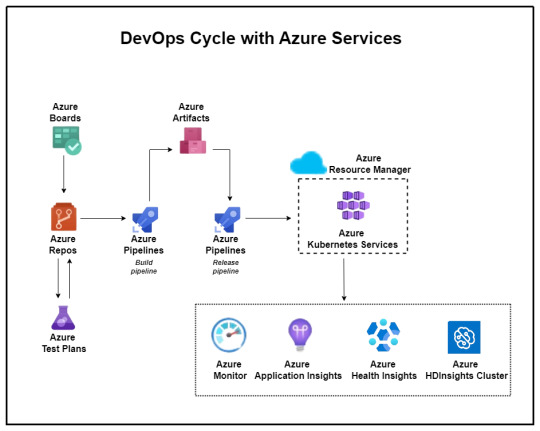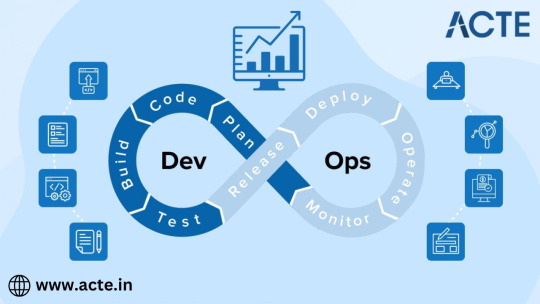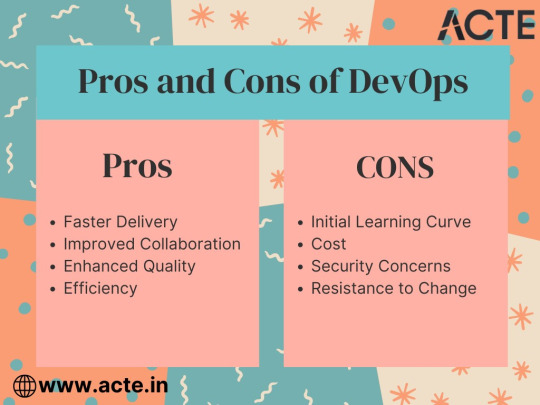#Agile DevOps methodologies
Explore tagged Tumblr posts
Text
Is DevOps and Agile the Same?- OpsNexa!
Explore the key differences and similarities between DevOps and Agile. Is DevOps and Agile the Same? While they are complementary, this guide will help you understand how each methodology addresses different aspects of the software development lifecycle and how they work together to accelerate development and deployment.
#DevOps vs Agile#Agile Methodology#Agile vs DevOps Differences#DevOps and Agile Comparison#Agile Development#DevOps Culture
0 notes
Text
Code in Motion: A Journey Through Software Development Methodologies.
Sanjay Kumar Mohindroo Sanjay Kumar Mohindroo. skm.stayingalive.in Software Development Methodologies that examine Agile, DevOps, microservices, and serverless architectures. The Pulse of Modern Software An open call for curious minds Software changes our lives. Code powers our work and play. We shape code as we shape our future. Software Development Methodologies guide our craft. They give…
#Agile#business#DevOps#digital-marketing#Leadership#marketing#Microservices#News#Sanjay Kumar Mohindroo#Serverless Architectures#Software Development Methodologies
0 notes
Text
Beyond Agile: Discover 10 Alternative and Effective Approaches for Product Development
While Agile is a widely successful and adaptable methodology, some alternative approaches or complementary strategies may be more effective depending on the context of the product, team dynamics, and business goals. Here are a few methods that can be considered more effective or tailored for specific scenarios than Agile: 1. Lean Development Overview: Lean focuses on reducing waste, improving…
#Agile alternatives#Business Agility#Design Thinking#DevOps#Dual-Track Agile#Feature-Driven Development#innovation in product management#Kanban#Lean development#Outcome-Driven Development#product development strategies#Product-Led Growth#safe#software development methodologies#XP
0 notes
Text

Deep down I knew it was always going to be my problem. Text: If approval is ownership, and you're the one who signed off… how the fuck did it become my problem?
#information technology#it#tech support#computers#networking#agile methodology#agile#technology#devops#cloudcomputing#softwaredevelopment
1 note
·
View note
Text
Exploring the Latest Trends in Software Development
Introduction The software is something like an industry whose development is ever-evolving with new technologies and changing market needs as the drivers. To this end, developers must keep abreast with current trends in their fields of operation to remain competitive and relevant. Read to continue .....
#analysis#science updates#tech news#technology#trends#adobe cloud#business tech#nvidia drive#science#tech trends#Software Solutions#Tags5G technology impact on software#Agile methodologies in software#AI in software development#AR and VR in development#blockchain technology in software#cloud-native development benefits#cybersecurity trends 2024#DevOps and CI/CD tools#emerging technologies in software development#future of software development#IoT and edge computing applications#latest software development trends#low-code development platforms#machine learning for developers#no-code development tools#popular programming languages#quantum computing in software#software development best practices#software development tools
0 notes
Text
Driving Innovation: A Case Study on DevOps Implementation in BFSI Domain
Banking, Financial Services, and Insurance (BFSI), technology plays a pivotal role in driving innovation, efficiency, and customer satisfaction. However, for one BFSI company, the journey toward digital excellence was fraught with challenges in its software development and maintenance processes. With a diverse portfolio of applications and a significant portion outsourced to external vendors, the company grappled with inefficiencies that threatened its operational agility and competitiveness. Identified within this portfolio were 15 core applications deemed critical to the company’s operations, highlighting the urgency for transformative action.

Aspirations for the Future:
Looking ahead, the company envisioned a future state characterized by the establishment of a matured DevSecOps environment. This encompassed several key objectives:
Near-zero Touch Pipeline: Automating product development processes for infrastructure provisioning, application builds, deployments, and configuration changes.
Matured Source-code Management: Implementing robust source-code management processes, complete with review gates, to uphold quality standards.
Defined and Repeatable Release Process: Instituting a standardized release process fortified with quality and security gates to minimize deployment failures and bug leakage.
Modernization: Embracing the latest technological advancements to drive innovation and efficiency.
Common Processes Among Vendors: Establishing standardized processes to enhance understanding and control over the software development lifecycle (SDLC) across different vendors.
Challenges Along the Way:
The path to realizing this vision was beset with challenges, including:
Lack of Source Code Management
Absence of Documentation
Lack of Common Processes
Missing CI/CD and Automated Testing
No Branching and Merging Strategy
Inconsistent Sprint Execution
These challenges collectively hindered the company’s ability to achieve optimal software development, maintenance, and deployment processes. They underscored the critical need for foundational practices such as source code management, documentation, and standardized processes to be addressed comprehensively.
Proposed Solutions:
To overcome these obstacles and pave the way for transformation, the company proposed a phased implementation approach:
Stage 1: Implement Basic DevOps: Commencing with the implementation of fundamental DevOps practices, including source code management and CI/CD processes, for a select group of applications.
Stage 2: Modernization: Progressing towards a more advanced stage involving microservices architecture, test automation, security enhancements, and comprehensive monitoring.
To Expand Your Awareness: https://devopsenabler.com/contact-us
Injecting Security into the SDLC:
Recognizing the paramount importance of security, dedicated measures were introduced to fortify the software development lifecycle. These encompassed:
Security by Design
Secure Coding Practices
Static and Dynamic Application Security Testing (SAST/DAST)
Software Component Analysis
Security Operations
Realizing the Outcomes:
The proposed solution yielded promising outcomes aligned closely with the company’s future aspirations. Leveraging Microsoft Azure’s DevOps capabilities, the company witnessed:
Establishment of common processes and enhanced visibility across different vendors.
Implementation of Azure DevOps for organized version control, sprint planning, and streamlined workflows.
Automation of builds, deployments, and infrastructure provisioning through Azure Pipelines and Automation.
Improved code quality, security, and release management processes.
Transition to microservices architecture and comprehensive monitoring using Azure services.
The BFSI company embarked on a transformative journey towards establishing a matured DevSecOps environment. This journey, marked by challenges and triumphs, underscores the critical importance of innovation and adaptability in today’s rapidly evolving technological landscape. As the company continues to evolve and innovate, the adoption of DevSecOps principles will serve as a cornerstone in driving efficiency, security, and ultimately, the delivery of superior customer experiences in the dynamic realm of BFSI.
Contact Information:
Phone: 080-28473200 / +91 8880 38 18 58
Email: [email protected]
Address: DevOps Enabler & Co, 2nd Floor, F86 Building, ITI Limited, Doorvaninagar, Bangalore 560016.
#BFSI#DevSecOps#software development#maintenance#technology stack#source code management#CI/CD#automated testing#DevOps#microservices#security#Azure DevOps#infrastructure as code#ARM templates#code quality#release management#Kubernetes#testing automation#monitoring#security incident response#project management#agile methodology#software engineering
0 notes
Text
"Maximizing Software Development Success: The Benefits of Integrating Agile and DevOps Methodologies"
Using both Agile and DevOps methodologies in a software development lifecycle offers several benefits:
Faster Time-to-Market: Agile facilitates iterative development and quick releases, while DevOps streamlines deployment and operations, leading to faster delivery of features and updates to end-users.
Improved Collaboration: Agile promotes cross-functional teams and frequent communication, while DevOps encourages collaboration between development, operations, and other stakeholders, fostering a culture of shared responsibility and cooperation.
Enhanced Quality: Agile's focus on continuous feedback and testing, combined with DevOps' emphasis on automation and continuous integration/continuous deployment (CI/CD), helps identify and resolve issues earlier in the development process, leading to higher-quality software.
Greater Flexibility and Adaptability: Agile allows teams to respond quickly to changing requirements and customer feedback, while DevOps enables rapid deployment and rollback of changes, providing the flexibility needed to adapt to evolving market demands.
Increased Efficiency and Productivity: Agile promotes self-organizing teams and efficient use of resources, while DevOps automates repetitive tasks and optimizes workflows, resulting in improved productivity and resource utilization across the development lifecycle.
Enhanced Customer Satisfaction: Agile's focus on delivering value to customers through incremental releases, combined with DevOps' ability to deliver stable and reliable software, results in higher customer satisfaction and retention.
Continuous Improvement: Both Agile and DevOps encourage a culture of continuous improvement and learning, with regular retrospectives and feedback loops, leading to ongoing refinement of processes, tools, and practices to drive better outcomes.
Cost Reduction: By minimizing waste, optimizing processes, and reducing time-to-market, the combined use of Agile and DevOps can lead to cost savings in software development and operations.
#magistersign#onlinetraining#support#usa#cannada#Agile#DevOps#SoftwareDevelopment#SoftwareEngineering#Methodologies#ContinuousIntegration#ContinuousDelivery#Collaboration#QualityAssurance#Efficiency
0 notes
Text
Understanding Agile and DevOps: Key Concepts and Principles
Together, Agile and DevOps drive digital transformation, helping organizations thrive in an era where adaptability and responsiveness are paramount. The successful fusion of Agile and DevOps promises a future where businesses can innovate rapidly, respond to market changes swiftly, and deliver value to customers continuously.
In the ever-evolving landscape of software development and IT operations, two methodologies have emerged as game-changers: Agile and DevOps. These approaches have not only transformed the way software is developed and delivered but have also become essential for businesses striving to stay competitive in the digital era. In this blog, we'll delve into the key concepts and principles that underpin Agile and DevOps, shedding light on why they are integral to the success of modern organizations, and explore how they are shaping the future of software development and IT operations.
Agile: A Paradigm Shift in Software Development

1. Iterative and Incremental Development
Agile embraces a flexible and iterative approach. Instead of trying to deliver the entire project at once, it divides the work into smaller, manageable increments. Each increment is developed in a time-boxed iteration, typically lasting 2-4 weeks, ensuring that working features are delivered consistently. 2. Customer Collaboration
Aile emphasizes close collaboration with customers and stakeholders. Their feedback is invaluable throughout the development process, enabling teams to adapt to changing requirements and deliver products that truly meet user needs.
3. Embracing Change
Change is inevitable in software development. Agile teams are adept at embracing change and adjusting their plans and priorities as new information emerges. This adaptability sets Agile apart from traditional, rigid project management approaches. 4. Self-Organizing Teams
Agile encourages self-organizing, cross-functional teams. Team members collectively decide how to complete their work, fostering a sense of ownership and accountability.
DevOps: Bridging the Gap Between Development and Operations
Collaboration: DevOps breaks down the silos between development and operations teams. It promotes collaboration, ensuring that both teams work together seamlessly to deliver software efficiently and with high quality.
Continuous Integration and Continuous Deployment (CI/CD): DevOps relies on CI/CD pipelines to automate the build, testing, and deployment of software. This automation accelerates the release process, reduces errors, and enhances product quality.
Infrastructure as Code (IaC): IaC treats infrastructure provisioning as code, allowing it to be versioned, automated, and managed just like software. This leads to faster, more reliable infrastructure deployment.
Monitoring and Feedback: DevOps puts a strong emphasis on monitoring software in production. By collecting and analyzing data, teams can identify and address issues promptly, ensuring optimal performance and reliability.
The Synergy of Agile and DevOps

Agile and DevOps are not isolated methodologies; they complement each other to create a harmonious approach to software development and delivery. Agile and DevOps are like a symphony orchestra where Agile sets the rhythm, and DevOps ensures harmonious execution.
Agile and DevOps: A Symbiotic Relationship
While Agile and DevOps have distinct focuses, they are highly complementary. Agile delivers the methodology for efficient development, while DevOps ensures the swift and reliable delivery of software into production. This partnership has been pivotal in helping organizations respond to market changes rapidly.
The Benefits of Embracing Agile and DevOps

Faster Time to Market: Agile and DevOps shorten development cycles, enabling businesses to deliver new features and products more quickly.
Speed and Efficiency: Agile and DevOps accelerate development and deployment, reducing time-to-market for products and features.
Quality Assurance: Continuous testing and automation in DevOps lead to improved software quality and reduced defects.
Improved Quality: Continuous testing and automation in DevOps result in higher software quality, reducing defects and enhancing user satisfaction.
Enhanced Collaboration: Agile and DevOps foster a culture of collaboration and transparency, aligning teams and stakeholders.
Risk Mitigation: Agile's adaptability and DevOps' monitoring capabilities help organizations mitigate risks and respond to challenges proactively.
In Conclusion
Understanding Agile and DevOps is not just about adopting methodologies; it's about embracing a cultural shift in how software is developed and delivered. The principles of Agile and DevOps promote flexibility, collaboration, and a relentless focus on delivering value to the customer. By incorporating these key concepts and principles, organizations can thrive in the fast-paced, technology-driven world we live in today. Together, Agile and DevOps drive digital transformation, helping organizations thrive in an era where adaptability and responsiveness are paramount. The successful fusion of Agile and DevOps promises a future where businesses can innovate rapidly, respond to market changes swiftly, and deliver value to customers continuously. To embark on this journey, organizations must embrace these key concepts and principles, championing a culture of collaboration, flexibility, and customer-centricity. Whether you're a software developer, a product manager, or a business leader, these methodologies offer the tools to succeed in a digital-first landscape.
Embrace the power of Agile and DevOps, where adaptability and collaboration meet efficiency and quality, shaping the future of software development in a digital world.
#agile methodology#scrum#agile practices#devops principles#continuous integration#continuous delivery
0 notes
Text
DevOps vs Agile: Choosing the Right Methodology for Your Project

In the ever-evolving landscape of software development, methodologies like DevOps and Agile have gained immense popularity for their ability to streamline processes and deliver high-quality products. However, choosing the right methodology for your project can be challenging, as both DevOps and Agile offer unique approaches to development and collaboration. This comprehensive guide dives into the intricacies of DevOps and Agile methodologies, highlighting their differences, benefits, and potential challenges. By understanding the principles and practices of both methodologies, you can make an informed decision about which approach aligns best with your project's goals, team dynamics, and development lifecycle.
Section 1: Understanding DevOps
DevOps is a collaborative methodology that focuses on breaking down silos between development and operations teams. It aims to achieve continuous integration and continuous delivery (CI/CD) by automating processes and fostering a culture of shared responsibility. DevOps encourages the use of tools for automation, configuration management, and monitoring to ensure seamless software development and deployment.
Section 2: Exploring Agile Methodology
Agile is an iterative and incremental approach to software development that prioritizes delivering functional software in short cycles known as sprints. It values customer collaboration, responsiveness to change, and delivering value early and often. Agile methodologies like Scrum and Kanban emphasize regular feedback, self-organizing teams, and adaptive planning.
Section 3: Key Differences
DevOps and Agile differ in their primary focuses and objectives. DevOps primarily centers on optimizing the development-to-production pipeline, ensuring rapid and reliable software delivery. Agile, on the other hand, concentrates on iterative development, customer engagement, and responding to evolving requirements. DevOps emphasizes automation and collaboration, while Agile emphasizes flexibility and customer satisfaction.
Section 4: Benefits of DevOps
DevOps offers several benefits, such as accelerated deployment cycles, reduced time-to-market, and improved software quality. Automation of processes minimizes human errors and enhances consistency. Collaboration between development and operations teams results in a smoother workflow, reduced deployment failures, and faster issue resolution.
Section 5: Benefits of Agile
Agile methodology provides benefits like enhanced customer engagement, adaptability to changing requirements, and increased visibility into project progress. Iterative development allows teams to respond to user feedback and changing market conditions effectively. Regular demonstrations of working software foster better stakeholder communication and satisfaction.
Section 6: Implementation Challenges
Implementing DevOps can face challenges such as resistance to cultural change, especially in organizations with traditionally separate development and operations teams. Integrating diverse tools into a cohesive toolchain can be complex, requiring thorough planning and training. The shift toward automation and continuous improvement demands a commitment to learning and skill development.
Section 7: Implementation Challenges for Agile
Agile implementation can encounter challenges such as managing evolving requirements within short timeframes, leading to scope creep or incomplete features. Continuous feedback loops require consistent communication, and teams need to adapt to changing priorities and refine their processes over time.
Section 8: Impact on Software Development
DevOps impacts software development by ensuring that development, testing, and deployment processes are automated and streamlined. Continuous integration and automated testing lead to more stable code, reducing the chances of post-deployment issues. Collaboration and shared ownership improve accountability and problem-solving.
Section 9: Impact of Agile on Software Development
Agile transforms software development by breaking projects into manageable sprints, allowing regular user feedback and the ability to adapt to changing requirements. Regular releases build customer trust, and the focus on delivering working software encourages quality throughout development.
Section 10: Choosing the Right Methodology
Choosing between DevOps and Agile depends on project characteristics, team dynamics, and organizational culture. DevOps suits projects that require rapid deployment and efficient operations, while Agile is ideal for projects with evolving requirements and a focus on customer feedback. Assessing the team's skills, project scope, and organization's readiness for change can guide the decision-making process.
Conclusion
The choice between DevOps and Agile is significant and requires a thorough understanding of each methodology's principles and impact. DevOps enhances collaboration and automation, accelerating deployment cycles, while Agile fosters flexibility and customer satisfaction through iterative development. Both methodologies offer valuable insights and practices that can be tailored to suit specific projects. By evaluating project requirements, team dynamics, and organizational goals, you can make an informed choice that aligns with your project's objectives, ensuring a successful and efficient software development process.
0 notes
Text
Unleash Peak Performance: How Vabro Boosts Team Productivity & Morale

Looking to unlock a happier, more productive team of IT superstars? Look no further than Vabro! Unlike traditional project management tools, Vabro is built specifically to supercharge Scrum/Agile workflows, leading to a more engaged and efficient work environment. Here's how Vabro makes the magic happen:
Scrum/Agile at its Core: Ditch clunky, outdated tools that struggle with Agile methodologies. Vabro seamlessly integrates with Scrum roles (Product Owner, Scrum Master, Team Member/Developer, etc.) and workflows, empowering your team to work smarter, not harder.
Minimal Learning Curve, Maximum Results: No time for weeks of training? Vabro boasts a user-friendly interface and a minimal learning curve for Scrum veterans. For those new to the game, Vabro offers free resources, webinars, training and certifications to get started easily (just a few hours of effort!). Your entire team can be up and running in no time!
Empowering Teams, Not Micromanaging: Say goodbye to top-down management that stifles creativity and motivation. Vabro fosters a bottoms-up approach, allowing developers to collaborate and determine workloads within each Sprint. This ownership boosts morale and leads to exceptional results.
One Platform, Endless Possibilities: Juggling multiple tools for Dev, DevOps, and IT Ops is a recipe for chaos. Vabro streamlines your workflow with a unified platform that manages everything through a single requirements backlog. Simplify your operations and watch your team's efficiency soar!
Designed for Humans, Not Robots: Forget complex interfaces and cryptic instructions. Vabro features an intuitive user interface with clear icons, helpful explanations, and extensive training resources. Your team will be navigating Vabro like pro's in no time!
The Vabro effect? Happier, more productive team members who consistently deliver outstanding results!
Ready to unlock the full potential of your team? Visit Vabro.com today and request a product demo or explore the platform for free!
#Scrum#Agile#Teamwork#Productivity#Vabro#scrumstudy#csm#psm#scrumframework#agileproject#projectmanagement#employeeengagement
8 notes
·
View notes
Text
How Does Agile and DevOps Interrelate?- OpsNexa!
Learn how Agile and DevOps work together to accelerate software delivery, improve collaboration, and foster continuous improvement. How Does Agile and DevOps Interrelate? Understand how Agile’s iterative approach and DevOps’ automation practices complement each other to create faster, more efficient software development cycles.
#Agile and DevOps#Agile DevOps Integration#Agile vs DevOps#DevOps and Agile Practices#Agile DevOps Synergy#DevOps Methodology
0 notes
Text
Automated Testing vs. Manual Testing: Which One is Right for Your Project?

Achieving high-quality, reliable software stands as a fundamental requirement in software development. Successful testing functions as an essential tool to discover faults and build performance capabilities that create better user experience outcomes. Two main testing methods dominate the field: automated testing and manual testing. The process of quality software assurance uses different testing approaches that demonstrate their own advantages as well as weaknesses according to specific project requirements and scenarios. We will explore the specifics to determine which testing process works best for your system development efforts.
1. What Is Manual Testing?

Manual testing involves a human tester manually executing test cases without using automation tools. Key Characteristics:
The methodology focuses its efforts on user interface together with usability and experience testing.
Human-centered applications where selection requires discretion include ad hoc testing and enumerative testing as well as examinations that need human evaluation.
Human performers are required during this approach; thus, it demands substantial time.
2. What Is Automated Testing?

Software performing automated testing executes test cases through workflows and helpers. Key Characteristics:
Efficient for repetitive and regression testing.
Users must spend money on tools along with developing custom scripts for testing.
Reduces human error.
3. Advantages of Manual Testing

Human Intuition: Software testing professionals can detect kernels through their human cognitive ability that automated tools cannot match. The observation and evaluation of visual elements runs more efficiently through human operatives instead of advanced tools.
Flexibility: This method suits exploratory testing specifically because there are no pre-determined scripts available.
Low Initial Investment: Running this approach does not need tool purchases or applications to develop automation frameworks.
Adaptable for UI/UX Testing: Running this approach does not need tool purchases or applications to develop automation frameworks.
4. Advantages of Automated Testing

Speed: Executes repetitive tests much faster than humans.
Scalability: The system proves most effective for extensive projects that need constant system updates.
Accuracy: When performing recurring actions, automated systems minimize the chances of human mistakes.
Cost-Efficient in the Long Run: Once established and implemented, the system demands costly investments but ensures continuous development expenses decrease over time.
Better for CI/CD Pipelines: Such testing technology connects various development pipelines that support agile and DevOps methodologies.
5. Disadvantages of Manual Testing

Time-Consuming: The manual performance of repeated tests leads to delayed completion of projects.
Error-Prone: Large applications contain tiny bugs that human testers commonly fail to detect.
Not Ideal for Scalability: The process of increasing manual testing needs additional testers to avoid cost escalations.
6. Disadvantages of Automated Testing

Initial Costs: Organizations must provide high financial resources to procure testing tools together with developing programming constructs.
Limited to Pre-Defined Scenarios: These testing approaches work poorly for handling exploratory or ad hoc testing.
Requires Maintenance: Test scripts need frequent updates when application changes occur.
Not Suitable for UI/UX Testing: Struggles with subjective user experience evaluations.
7. When to Use Manual Testing

Small Projects: The testing method proves beneficial at a low cost for small applications and provides quick assessments.
Exploratory Testing: Testing this approach benefits projects whose scripts have not been defined yet or need evaluation for newly added features.
Visual and Usability Testing: Performing assessments on interface components together with design features.
8. When to Use Automated Testing

Large Projects: Handles scalability for projects with frequent updates.
Regression Testing: Program testing becomes more efficient through automation since automated assessments perform multiple tests following each update process.
Performance Testing: The system performs efficient capabilities to conduct load testing and stress testing.
Continuous Development Environments: Agile progression and DevOps implementations need automation as a core requirement.
READ MORE- https://www.precisio.tech/automated-testing-vs-manual-testing-which-one-is-right-for-your-project/
2 notes
·
View notes
Text
Vietnam software outsourcing: What every tech leader needs to know in 2025
In the dynamic landscape of global business, outsourcing has emerged as a powerful solution, and Vietnam stands out as a rising star in this arena. This comprehensive guide about Vietnam software outsourcing from PowerGate Software is designed for a diverse audience, including SMBs, rapidly scaling startups, and established enterprises across various industries. Whether you’re considering your first outsourcing venture or looking to diversify your current offshore portfolio, this guide will equip you with the essential knowledge to make informed decisions.
You’ll learn about the core benefits of IT outsourcing to Vietnam, how it compares to other leading destinations, popular services to consider, critical cost factors, and a step-by-step roadmap for successful engagement.
1. Core benefits of software outsourcing to Vietnam
Vietnam’s growing appeal as an outsourcing hub stems from several key advantages:
1.1. Significant cost savings
One of the most immediate and impactful benefits of IT outsourcing to Vietnam is the significant cost reduction.��You’ll benefit from substantially lower labor costs compared to Western countries. For instance, while the average software developer salary in the US can exceed $123,000 annually, in Vietnam, the average annual salary for a software developer is around $80,000.

Source: Onextdigital
1.2. Skilled and growing tech talent pool
Vietnam boasts a burgeoning pool of tech talent, driven by demographics and a strong educational focus. Access a young (*), educated, and tech-savvy workforce known for high literacy rates and a strong work ethic. There’s an increasing focus on STEM education and specialized skills in AI, Blockchain, and Cybersecurity, ensuring a future-ready talent pool. English proficiency is also on the rise within the tech sector.
(*) In 2025, the working-age population (15-64 years) in Vietnam accounts for 69.3% of the total population
1.3. Scalability & flexibility
IT outsourcing to Vietnam offers unparalleled scalability and flexibility, which are crucial for dynamic business needs.
Rapid team expansion or reduction: Companies can quickly scale their teams up or down based on project demands, without the complexities and costs associated with in-house hiring and layoffs.
Reduced administrative burden of in-house hiring: Vietnamese Outsourcing partners handle all aspects of recruitment, onboarding, payroll, and HR, freeing up your internal resources to focus on core business activities.
1.4. Innovation & quality
Vietnamese software outsourcing providers are increasingly recognized for cost-effectiveness and their commitment to innovation and quality.
Growing expertise in emerging technologies: As mentioned, the talent pool rapidly develops expertise in cutting-edge technologies, enabling businesses to leverage these advancements for their projects.
Commitment to quality and international standards: Many Vietnamese companies adhere to international standards (e.g., ISO, CMMI) and employ robust project management methodologies (e.g., Agile, Scrum) to ensure high-quality deliverables.
2. Popular IT services outsourced to Vietnam
Vietnam’s software outsourcing capabilities span a wide range of services, catering to diverse business needs.
Software Development: This includes a broad spectrum of services, from web development (frontend and backend) and mobile app development (iOS, Android, cross-platform) to complex enterprise applications.
Web Design & Development: Creating visually appealing and highly functional websites.
Quality Assurance (QA) & Testing: Ensuring software quality through manual and automated testing, performance testing, security testing, etc.
IT Infrastructure & Support: Services like DevOps implementation, Cloud Services (migration, management), and general IT support.
Emerging Technologies: Growing expertise in areas like AI/ML (Artificial Intelligence/Machine Learning) for intelligent automation and data analysis, Blockchain for secure and transparent transactions, IoT (Internet of Things) for connected devices, and Data Science for insights and predictive analytics.
Cybersecurity Services: Protecting digital assets and infrastructure from threats.
1 note
·
View note
Text

I know the old adage about making money on the problem, but what have you been doing for the last six months that you're not even pretending to have done work? Text: The problem is I don't know this organization's processes.", said the process improvement consultant that was brought on six months ago to improve the organization's processes.
#tech memes#technology#devops#information technology#quotes#agile methodology#scrum#agile#processimprovement
0 notes
Text
How-To IT
Topic: Core areas of IT
1. Hardware
• Computers (Desktops, Laptops, Workstations)
• Servers and Data Centers
• Networking Devices (Routers, Switches, Modems)
• Storage Devices (HDDs, SSDs, NAS)
• Peripheral Devices (Printers, Scanners, Monitors)
2. Software
• Operating Systems (Windows, Linux, macOS)
• Application Software (Office Suites, ERP, CRM)
• Development Software (IDEs, Code Libraries, APIs)
• Middleware (Integration Tools)
• Security Software (Antivirus, Firewalls, SIEM)
3. Networking and Telecommunications
• LAN/WAN Infrastructure
• Wireless Networking (Wi-Fi, 5G)
• VPNs (Virtual Private Networks)
• Communication Systems (VoIP, Email Servers)
• Internet Services
4. Data Management
• Databases (SQL, NoSQL)
• Data Warehousing
• Big Data Technologies (Hadoop, Spark)
• Backup and Recovery Systems
• Data Integration Tools
5. Cybersecurity
• Network Security
• Endpoint Protection
• Identity and Access Management (IAM)
• Threat Detection and Incident Response
• Encryption and Data Privacy
6. Software Development
• Front-End Development (UI/UX Design)
• Back-End Development
• DevOps and CI/CD Pipelines
• Mobile App Development
• Cloud-Native Development
7. Cloud Computing
• Infrastructure as a Service (IaaS)
• Platform as a Service (PaaS)
• Software as a Service (SaaS)
• Serverless Computing
• Cloud Storage and Management
8. IT Support and Services
• Help Desk Support
• IT Service Management (ITSM)
• System Administration
• Hardware and Software Troubleshooting
• End-User Training
9. Artificial Intelligence and Machine Learning
• AI Algorithms and Frameworks
• Natural Language Processing (NLP)
• Computer Vision
• Robotics
• Predictive Analytics
10. Business Intelligence and Analytics
• Reporting Tools (Tableau, Power BI)
• Data Visualization
• Business Analytics Platforms
• Predictive Modeling
11. Internet of Things (IoT)
• IoT Devices and Sensors
• IoT Platforms
• Edge Computing
• Smart Systems (Homes, Cities, Vehicles)
12. Enterprise Systems
• Enterprise Resource Planning (ERP)
• Customer Relationship Management (CRM)
• Human Resource Management Systems (HRMS)
• Supply Chain Management Systems
13. IT Governance and Compliance
• ITIL (Information Technology Infrastructure Library)
• COBIT (Control Objectives for Information Technologies)
• ISO/IEC Standards
• Regulatory Compliance (GDPR, HIPAA, SOX)
14. Emerging Technologies
• Blockchain
• Quantum Computing
• Augmented Reality (AR) and Virtual Reality (VR)
• 3D Printing
• Digital Twins
15. IT Project Management
• Agile, Scrum, and Kanban
• Waterfall Methodology
• Resource Allocation
• Risk Management
16. IT Infrastructure
• Data Centers
• Virtualization (VMware, Hyper-V)
• Disaster Recovery Planning
• Load Balancing
17. IT Education and Certifications
• Vendor Certifications (Microsoft, Cisco, AWS)
• Training and Development Programs
• Online Learning Platforms
18. IT Operations and Monitoring
• Performance Monitoring (APM, Network Monitoring)
• IT Asset Management
• Event and Incident Management
19. Software Testing
• Manual Testing: Human testers evaluate software by executing test cases without using automation tools.
• Automated Testing: Use of testing tools (e.g., Selenium, JUnit) to run automated scripts and check software behavior.
• Functional Testing: Validating that the software performs its intended functions.
• Non-Functional Testing: Assessing non-functional aspects such as performance, usability, and security.
• Unit Testing: Testing individual components or units of code for correctness.
• Integration Testing: Ensuring that different modules or systems work together as expected.
• System Testing: Verifying the complete software system’s behavior against requirements.
• Acceptance Testing: Conducting tests to confirm that the software meets business requirements (including UAT - User Acceptance Testing).
• Regression Testing: Ensuring that new changes or features do not negatively affect existing functionalities.
• Performance Testing: Testing software performance under various conditions (load, stress, scalability).
• Security Testing: Identifying vulnerabilities and assessing the software’s ability to protect data.
• Compatibility Testing: Ensuring the software works on different operating systems, browsers, or devices.
• Continuous Testing: Integrating testing into the development lifecycle to provide quick feedback and minimize bugs.
• Test Automation Frameworks: Tools and structures used to automate testing processes (e.g., TestNG, Appium).
19. VoIP (Voice over IP)
VoIP Protocols & Standards
• SIP (Session Initiation Protocol)
• H.323
• RTP (Real-Time Transport Protocol)
• MGCP (Media Gateway Control Protocol)
VoIP Hardware
• IP Phones (Desk Phones, Mobile Clients)
• VoIP Gateways
• Analog Telephone Adapters (ATAs)
• VoIP Servers
• Network Switches/ Routers for VoIP
VoIP Software
• Softphones (e.g., Zoiper, X-Lite)
• PBX (Private Branch Exchange) Systems
• VoIP Management Software
• Call Center Solutions (e.g., Asterisk, 3CX)
VoIP Network Infrastructure
• Quality of Service (QoS) Configuration
• VPNs (Virtual Private Networks) for VoIP
• VoIP Traffic Shaping & Bandwidth Management
• Firewall and Security Configurations for VoIP
• Network Monitoring & Optimization Tools
VoIP Security
• Encryption (SRTP, TLS)
• Authentication and Authorization
• Firewall & Intrusion Detection Systems
• VoIP Fraud DetectionVoIP Providers
• Hosted VoIP Services (e.g., RingCentral, Vonage)
• SIP Trunking Providers
• PBX Hosting & Managed Services
VoIP Quality and Testing
• Call Quality Monitoring
• Latency, Jitter, and Packet Loss Testing
• VoIP Performance Metrics and Reporting Tools
• User Acceptance Testing (UAT) for VoIP Systems
Integration with Other Systems
• CRM Integration (e.g., Salesforce with VoIP)
• Unified Communications (UC) Solutions
• Contact Center Integration
• Email, Chat, and Video Communication Integration
2 notes
·
View notes
Text
DevOps: Balancing the Scales of Advantages and Challenges
In the ever-evolving landscape of technology, the term "DevOps" has become more than just a buzzword; it's a transformative force that's reshaping the way software is developed and delivered. DevOps, a fusion of "development" and "operations," represents a seismic shift in the world of software engineering and IT operations. It's not just a methodology; it's a cultural movement aimed at achieving agility, collaboration, and efficiency in the modern tech ecosystem.

In this comprehensive guide, we'll explore the essential aspects of DevOps, including why it's a necessity in today's technology-driven world. We'll delve into the advantages and disadvantages of DevOps practices and their impact on businesses.
Why DevOps is a Necessity Today
In the fast-paced and dynamic world of technology, businesses can't afford the delays and bottlenecks that traditional software development and deployment processes often entail. DevOps emerges as the solution to this challenge, bridging the gap between the two historically distinct domains of software development and IT operations.
The need for DevOps is driven by several critical factors:
Agility: Modern businesses must respond swiftly to changing customer needs and market trends. DevOps practices empower organizations to deliver software faster and respond more effectively to shifts in the market.
Quality: Customer expectations are at an all-time high. High-quality software with minimal bugs and issues is not just a preference; it's an expectation. DevOps practices, such as continuous integration and continuous delivery (CI/CD), are designed to improve software quality.
Efficiency: The automation of repetitive tasks in the software development and deployment process leads to greater efficiency and reduced manual errors. This automation also cuts operational costs.
Collaboration: DevOps promotes cross-functional collaboration between traditionally siloed development and operations teams. It breaks down communication barriers and fosters a more efficient exchange of ideas and information.
Scalability: The ability to scale infrastructure and applications quickly and efficiently is crucial in a rapidly changing tech landscape. DevOps practices facilitate this scalability.
The Advantages of DevOps
DevOps offers a multitude of benefits, making it a compelling choice for businesses looking to streamline their software development and deployment processes.
Faster Delivery: One of the most significant advantages of DevOps is the acceleration of the development, testing, and deployment of software. This leads to a substantial reduction in time-to-market.
Improved Collaboration: DevOps eliminates the silos that traditionally separated development and operations teams. Enhanced collaboration and communication lead to more efficient workflows and processes.
Enhanced Quality: Continuous integration and continuous delivery practices in DevOps result in higher-quality software with fewer bugs and issues. This directly contributes to greater customer satisfaction.
Efficiency: Automation of repetitive tasks and processes improves efficiency, reduces manual errors, and cuts operational costs. The cost-effectiveness of DevOps is a significant advantage for organizations.

The Disadvantages of DevOps
While the advantages of DevOps are clear and compelling, it's essential to recognize that there are challenges and potential disadvantages associated with its adoption.
Initial Learning Curve: Implementing DevOps practices and tools can be challenging, particularly for teams and individuals who are accustomed to traditional software development and IT operations processes. There is a learning curve associated with the adoption of DevOps practices.
Cost: Setting up and maintaining DevOps practices and tools can be costly, especially for small businesses. The initial investment in infrastructure and training can be a barrier for some organizations.
Security Concerns: DevOps emphasizes speed and automation, which can sometimes come at the expense of security. While security is a fundamental aspect of DevOps, there may be concerns about the potential trade-offs between speed and security. Organizations must place a strong emphasis on security within their DevOps practices.
Resistance to Change: DevOps represents a cultural shift within organizations. Employees may resist changes to traditional ways of working, and there can be resistance to new processes and tools.
In conclusion, DevOps is not just a methodology; it's a necessity in today's tech-driven world. It offers numerous advantages, including faster delivery, improved collaboration, enhanced quality, efficiency, and scalability. While there are challenges associated with its adoption, the benefits of DevOps far outweigh the disadvantages.
If you're considering a career in DevOps, there's no better time to embark on this transformative journey. DevOps professionals are in high demand, and their expertise is instrumental in driving the success of modern businesses. To prepare for a successful career in DevOps, it's crucial to acquire the right skills and knowledge.
This is where ACTE Technologies comes into play. With their comprehensive training programs and expert guidance, you can gain the skills and hands-on experience needed to excel in the field of DevOps. Their courses are tailored to provide you with a deep understanding of DevOps practices, tools, and methodologies. Whether you're starting from scratch or looking to enhance your existing skills, ACTE Technologies is your trusted partner on the path to a rewarding DevOps career. Embrace the DevOps revolution and be at the forefront of software delivery transformation.
12 notes
·
View notes